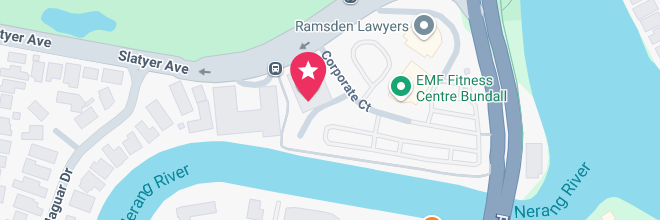Our Brisbane CBD Office
- Suite 400, Level 4/288 Edward St, Brisbane City QLD 4000
- (07) 3910 5470




In recent years, there have been significant changes in personal injury law across Queensland that directly affect how personal injury claims are processed and compensated. These changes impact not only the legal profession but also the clients who suffer from accidents and injuries. If you’ve been injured in an accident, whether at work, on the road, or due to the negligence of others, understanding the latest legislative updates is essential to ensuring you receive the compensation you deserve.
This article provides an in-depth look at the recent changes in personal injury law in Queensland, focusing on legislation affecting compensation claims, the role of insurance, and the way legal firms approach personal injury cases. If you have sustained a personal injury, it’s crucial to stay informed about these updates, as they could have a direct impact on your legal options.
Personal injury law is designed to provide compensation for individuals who suffer harm due to the actions or negligence of another party. In Queensland, the Personal Injuries Proceedings Act 2002 (Qld) (PIPA) and other related legislation serve as the foundation for personal injury claims. These laws govern how claims are made, who is eligible for compensation, and the procedures involved in obtaining fair compensation for injuries.
Over time, these laws have evolved to better reflect the complexities of modern-day personal injury cases, with new amendments and regulations implemented to address the growing demands of the legal system and social expectations.
If you have suffered an injury due to someone else’s negligence in Brisbane or anywhere in Queensland, it’s crucial to understand the legal framework governing personal injury claims. Queensland has a well-defined set of laws that outline the rights of injured individuals and the procedures for seeking compensation. This guide will explore the key legislation that governs personal injury claims in Queensland, helping you navigate the process with confidence.
Key Legislation Governing Personal Injury Claims in Queensland
The Personal Injuries Proceedings Act 2002 (Qld) (PIPA) establishes the pre-court processes required for personal injury claims in Queensland. This legislation aims to streamline claims, encourage early settlements, and reduce legal costs. Under PIPA, claimants must follow strict procedural steps, including:
The Civil Liability Act 2003 (Qld) plays a vital role in personal injury claims, particularly in cases involving negligence. This Act sets out the legal principles surrounding duty of care, breach of duty, and the extent of liability. Key provisions include:
For individuals injured at work, the Workers’ Compensation and Rehabilitation Act 2003 (Qld) governs workplace injury claims. This legislation ensures that employees who suffer work-related injuries can access compensation through WorkCover Queensland or a self-insured employer. Key elements include:
The Motor Accident Insurance Act 1994 (Qld) governs claims arising from motor vehicle accidents in Queensland. Under this Act, injured parties can claim compensation through Queensland’s Compulsory Third Party (CTP) insurance scheme. Important aspects include:
Time limits are crucial when lodging a personal injury claim, and the Limitation of Actions Act 1974 (Qld) prescribes the statutory deadlines for different types of claims:
How a Brisbane Personal Injury Lawyer Can Help
Navigating personal injury laws in Queensland can be complex, and failing to comply with legislative requirements can jeopardize your claim. An experienced Brisbane personal injury lawyer can assist with:
If you’ve suffered an injury and need expert legal advice, contact a trusted personal injury law firm in Brisbane today. Understanding Queensland’s personal injury legislation is the first step towards securing the compensation you deserve.
In 2023 and 2024, several important legislative changes were made in Queensland’s personal injury law landscape. These updates aim to streamline the process, reduce fraudulent claims, and ensure fair compensation for legitimate claimants. Let’s take a closer look at these recent updates.
2.1 Changes to the Motor Accident Insurance Act 1994
One of the major changes that has affected personal injury law in Queensland is the recent amendments to the Motor Accident Insurance Act 1994 (QLD) (MAIA). This Act governs the process for motor accident claims, including compensation for injuries resulting from car accidents.
In response to growing concerns about the costs associated with motor vehicle accidents, Queensland’s government introduced changes aimed at capping legal fees and simplifying the claims process. The key highlights of the amendments include:
These changes are significant for anyone involved in a motor vehicle accident, as they ensure quicker resolution times and better protection for injured parties.
2.2 Reforms to Workers’ Compensation Law
In 2023, Queensland enacted a set of reforms to the Workers’ Compensation and Rehabilitation Act 2003 (Qld), a piece of legislation that governs compensation claims for workplace injuries. These reforms focus on enhancing access to compensation, particularly for workers suffering from psychological injuries such as stress, depression, and anxiety.
Key updates to workers’ compensation law in Queensland include:
Recent legislative reforms in Queensland have significantly impacted workers’ compensation laws, particularly concerning psychological injuries and employer liabilities. These changes aim to enhance support for workers and clarify employer responsibilities.
Prior to October 2019, Queensland’s Workers’ Compensation and Rehabilitation Act 2003 required that employment be the “major significant contributing factor” to a psychological injury for a claim to be accepted. The Workers’ Compensation and Rehabilitation and Other Legislation Amendment Act 2019 amended this definition, stating that employment must be “a significant contributing factor” to the injury. This adjustment lowers the threshold for workers seeking compensation for psychological injuries, aligning Queensland with other jurisdictions and acknowledging the substantial impact of workplace stress on mental health.
The Workers’ Compensation and Rehabilitation and Other Legislation Amendment Act 2024 introduced several key changes:
These legislative changes reflect Queensland’s commitment to improving the workers’ compensation system, ensuring that workers receive timely and appropriate support for both physical and psychological injuries, and clarifying employer responsibilities to foster a safer and more supportive workplace environment.
Workers in Queensland should take note of these reforms, as they may significantly improve their ability to seek compensation for mental health-related injuries or illnesses arising from their employment.
Alongside these legislative updates, there have been several trends in personal injury claims that have emerged in Queensland over the past year. These include:
3.1 Increased Use of Alternative Dispute Resolution (ADR)
With the ongoing changes to the legal system, there has been a notable shift toward using alternative dispute resolution (ADR) methods, such as mediation and negotiation, to resolve personal injury claims outside of the courtroom. ADR methods allow both parties to come to an agreement without the need for a prolonged trial. This not only saves time but also reduces the costs involved for both claimants and defendants.
3.2 Use of Technology in Personal Injury Cases
Technology has played a key role in the evolution of personal injury law. From using medical imaging to provide clearer evidence of injuries, to virtual hearings that allow claimants and legal professionals to work remotely, technology has streamlined the personal injury claims process. This is particularly beneficial in reducing delays and improving the overall efficiency of the legal process.
For those involved in personal injury claims in Queensland, it’s essential to stay up-to-date with the latest legislative changes. These updates affect your rights, the amount of compensation you can receive, and the process you must follow in pursuing your claim. Working with a qualified personal injury lawyer in Queensland can help ensure that you navigate these changes successfully and receive the compensation you deserve.
Conclusion
Recent legislative updates to Queensland’s personal injury laws have reshaped the way compensation is handled across a variety of injury categories. From motor vehicle accidents to workers’ compensation and public liability claims, these reforms aim to make the process fairer, more efficient, and more accessible to those who need it most.
Whether you’ve suffered from an accident on the road, in the workplace, or in a public place, understanding these legislative changes can help you make informed decisions about your claim. If you are seeking compensation for personal injury in Queensland, it is essential to work with a personal injury law firm that understands the latest developments in the field and can guide you through the process.
At Trilby Misso we are committed to helping you navigate these changes and securing the compensation you are entitled to. Contact us today to schedule a consultation and learn how our team can assist you with your personal injury claim.
Find out more about legislative updates and news in our blogs.
Kathryn is Trilby Misso’s Chief Executive Officer.
Meet KathrynUse this simple online tool and find out if you have a claim in less than thirty seconds. You can choose to remain anonymous.
Your next step is a small one. All you need to do is give us a call on 07 3910 5470 or complete this form here to arrange a quick chat.
During this initial conversation, we will:

We understand that taking legal action can be stressful, and we’ll do all we can to ease your concerns.
The chat can take place at our place, your place, or by phone. There is no cost, no pressure, and no obligation.
Call 07 3910 5470 or fill out this form, and we’ll get back to you within 2 hours (during business hours). We look forward to meeting you.
enquire now